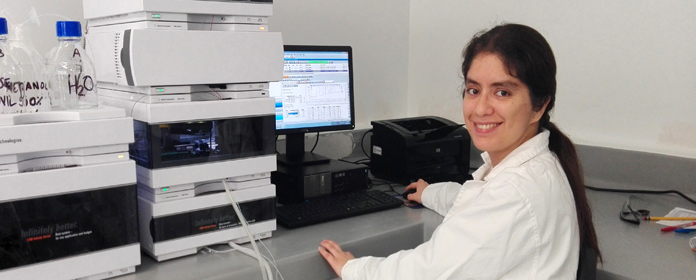Cow's milk in Spain: a food free of toxins
A study carried out at the University of Navarra analyzes for the first time the presence of 22 mycotoxins in nearly 200 samples.

PHOTO: Courtesy
A pioneering study in Spain has analyzed for the first time the presence of 22 mycotoxins -toxins produced by fungi- in cow's milk. The results of the analysis of almost two hundred samp les, carried out at thedepartment of Chemistry Organic and Pharmaceutical of the University of Navarra and directed by Dr. Elena González-Peñas, did not show any positive case for any of the mycotoxins studied.
According to the author of research, Myra Evelyn Flores, the presence in food of toxins caused by fungi can generate multiple health problems and affect various organs -kidney, liver, brain, etc.- and even cause cancer, as is the case with aflatoxins.Taking into account their relevance, the scientist took as a starting point programs of study previous studies that pointed to the possibility that when animals are fed with already contaminated material, mycotoxins could reach their milk, although at low levels.
"We find that at least 10% of milk samples tested worldwide contain a toxin, calledaflatoxin M1, at levels that could endanger human health. However, if we focus on Europe alone, this percentage drops to 1%, with the highest contamination found in Asia. In addition, other different mycotoxins have been found in milk samples from several countries," adds the new doctor at Chemistry.
Thus, with the goal to analyze these substances in Spanish milk samples, the researcher developed an analysis methodology based on liquid chromatography coupled to mass spectrometry. "With both techniques we have managed to identify and quantify the presence of up to 22 mycotoxins, such as deoxynivalenol, aflatoxins, ochratoxin A and T-2 toxin and their metabolites-which are some of the most worrying for their presence in animal foods-and other toxins that had not been studied until now, such as fumonisins, ochratoxin B or sterigmatocystin", details Myra Evelyn Flores.
Samples of milk marketed and from Spanish farmsA total of 107 samples of cow's milk marketed in Spain and 84 samples taken from farms in the country were analyzed at research . "We have not detected any of the 22 mycotoxins in any of the samples analyzed at levels above the detection limits of the methods developed," stresses the scientist.
group The study -the first in Spain to analyze such a wide range of mycotoxins in national cow's milk- was also extended to 30 samples of evaporated cow's milk of Peruvian origin, where the presence of ochratoxin A was detected in 13% of the samples, although at low levels. "The work was extended to Peru because it was the first time that a study of this subject was carried out and because it is my country of origin", explains the researcher, who has developed her doctoral thesis thanks to a scholarship of the association of Friends of the University of Navarra.
"The conclusion we reached is that the Spanish milk analyzed is free of mycotoxins. However, due to the fact that it is a food of high consumption -especially among the infant population- it would be necessary to carry out programs of study of this subject periodically", concludes the author, who currently works in her country as a researcher in the food industry.
This project has been funded by the University Foundation of Navarra and the Government of Navarra (department of development Economic).
